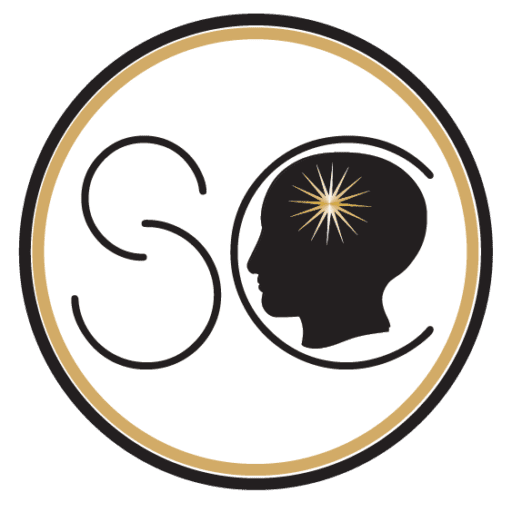literacy and language SUPPORT
FREQUENTLY ASKED QUESTIONSLITERACY AND LANGUAGE QUESTIONS
Who is the program for?
Sound Connections was developed to support a wide range of learners. Sound Connections students are as young as four and range into early adulthood. Some students are in the program purely for enrichment. Others truly love the enjoyment that comes alongside being a writer and choose to attend sessions for fun! Many students who come to Sound Connections have fallen behind and need support in achieving grade-appropriate skills. Students often have a recognized diagnosis that requires them to have a specialized approach. The structured, cumulative, multi-sensory nature of this program means that it is suitable for children with dyslexia or other learning disabilities relating to literacy. Program adaptations have been made so that there are very small steps for those with more involved needs. Our belief is that all students can learn!
What is the cost of each session?
To get pricing information, contact your specific centre. Prices may vary based on centre location.
Does the program provide quick results?
We do not suggest that changes will happen overnight with our program. Intensive and structured interventions result in a solid progression; one skill building on the next. Children are individual in their paths to learning and will progress at different rates. Pace of learning is enhanced when parents become excited in their child’s program and enjoy participating in the follow-up activities at home. Rate of progress can also depend on how much the child practices a skill and the severity and type of difficulty with literacy. We pride ourselves on a structured progression through individualized programs, paying close attention to scientific research on reading and evidence-based practices.

Is Sound Connections a Speech Language Pathology service?
Do you help to develop fine motor skills and printing?
Sound Connections teaches generally recognized best practices in pencil grip, pencil control, and letter printing as part of the program. Therefore, improvement of fine motor skills often happens with the explicit nature of this teaching. However, we are not an occupational therapy program, so if students have significant fine motor difficulties, we suggest that parents contact an occupational therapist.
What is the research surrounding your approach?
The Sound Connections resources were developed through strong theoretical knowledge, combined with hands-on action research. This research encompassed a unique blend of brain research, cognitive psychology, education, early childhood development, and learning disabilities. Annette (the program developer) spent many years researching, trying, and testing the programs during her years working with a dedicated team in School District 5 in B.C. An “Action Research” methodology was adopted where the intervention was implemented throughout the year by a multi-disciplinary team. Each year in May, the teachers provided data based on standards set by the English Language Arts IRP. The data showed the ability of each child to function with successful literacy skills in the classroom. Teachers were delighted with the positive impact that the program made in the classroom, especially considering that it did not exclude any students with any form of diagnosis.
Ten years of data were submitted to school district administrators and several years of data were submitted to the Network of Performance-Based Schools. The results were positive and impressive. In 2010 Annette’s work was recognized by the province of British Columbia with an honorable mention for outstanding achievement in literacy (Council of the Federation Literacy Award). Annette continues to remain up to date with literacy research, ensuring that Sound Connections methods are research-based.
When are sessions available?
Sound Connections session times vary based on centre location. Please contact your nearest centre to discuss scheduling.
Is Sound Connections primarily a phonics-based program?
Many people conclude that we are a phonics-based program due to our name including the word “sound.” However, “sound” also refers to solid, firm, logically valid, and thorough (Merriam Webster Dictionary, 2021). Therefore, Sound Connections refers to having solid and firm multi-sensory connections across all areas of literacy. As part of our program, we do have a strong focus on phonological awareness and important phonic skills. We use a highly structured phonic approach with intensive systematic teaching of foundational literacy skills that include phonemic and phonological awareness training.
My child has a diagnosed learning disability (such as dyslexia, dysgraphia, or ADHD, for example). Will this program help?
The answer to this is absolutely! Our methods are multi-sensory, structured and cumulative, which makes it a great fit for children with a diverse range of needs.
How long does it take to complete the program?
This question is difficult to answer because student learning profiles vary greatly, and some have more opportunities for home practice than others. Regular practice makes a significant difference in the speed at which a student will progress through the program. We encourage all parents to be partners in the process. If there are significant learning needs and delays, children will need to move slowly to make sure the skills are fully established. Other students achieve grade appropriate skills (and above) very quickly. We believe in lifelong learning; there is always more that we can learn! Therefore, when your child is functioning independently and confidently at grade level, it may be an appropriate time to consider stopping services. However, many students develop a love of writing and want to continue creating their own literary masterpieces. These students choose to stay at Sound Connections and develop writing material well beyond that of their grade level.
How are you staying safe during the COVID-19 pandemic?
Currently, Sound Connections Calgary is offering online services using an interactive program for multi-sensory learning. Please contact the centres directly for more information on Covid-19 safety measures and protocols.
What is the difference between phonological awareness and phonics?
It is important to note that phonological awareness is different to phonics. Phonics is the way that letters, or groups of letters, correspond to different types of sounds. Phonological awareness is the awareness of the sound structure of language. This includes awareness that sentences are made of words, words are made of syllables and that we can further subdivide into onset-rime (e.g. cat broken into c-at, spin broken into sp-in) and phonemes. Tasks can include blending (putting back together), segmenting (breaking words apart) and manipulating units of sound with working memory. Phonological awareness develops a strong foundation to reading, writing, and oral language. If we just do phonics training, valuable learning opportunities are missed. Phonic skills are important, but they are important alongside all aspects of phonological awareness.
HOW LONG IS EACH SESSION AND HOW MANY DAYS A WEEK DO THE STUDENTS ATTEND?
The 45 minute lessons are fast-moving and fun. We focus on hands-on learning rather than using worksheets. The lessons are motivational and incorporate kinesthetic movement into our in-person and online sessions.
Students attend a minimum of 2 sessions per week. This allows for the appropriate amount of revision and overlearning. Students are welcome to attend more than 2 sessions per week, if desired.
CONTACT US TO BOOK YOUR INITIAL SCREEN TODAY!
“Our daughter moved through grade 5 with increased confidence, and we can understand what she is trying to communicate in her writing… We’ve told our teachers, friends, and even our pediatrician about Sound Connections because it has been so valuable for our daughter’s learning.”
“The quality of teaching is beyond exceptional. The teachers make it a fun experience and keep every session interesting, varied and the kids are so engaged. Both my children are well ahead of their expected grade level curve. I believe my kids are thriving in school because their literacy foundation is so solid due to the education Sound Connections provided them. Thank you Sound Connections! 5 stars all the way!”
